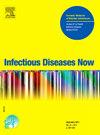气候十字路口:全球变暖如何推动冠状病毒的出现,未来的长期COVID危机,以及人工智能在引领我们未来中的作用。
IF 2.2
4区 医学
Q2 INFECTIOUS DISEASES
引用次数: 0
摘要
这篇叙述性综述探讨了气候变化、冠状病毒出现和长期covid - 19之间的重要联系,这是一个可能影响几代人的公共卫生结果的三位一体。气候变化破坏了历史上限制病毒溢出事件的生态平衡,在野生动物水库和人类种群之间创造了新的界面。冠状病毒科因其多样性、适应性和已证明的跨物种传播能力而特别令人担忧。仅在蝙蝠种群中就发现了200多种冠状病毒,这种巨大的遗传多样性资源库,加上蝙蝠家族的重组倾向,造成了巨大的大流行可能性,而气候破坏可能会进一步放大这种可能性。新冠肺炎疫情揭示了冠状病毒威胁的另一个方面:急性感染后可能造成严重的慢性疾病负担。这种复杂的多系统疾病影响了很大一部分SARS-CoV-2感染者,其机制包括病毒持久性、自身免疫、微凝块形成和线粒体功能障碍。未来的预测表明,到2070年,气候变化可能使全球病毒溢出风险增加30-45%,特别是在东南亚、中非和南美洲部分地区。人工智能通过加强监测、加速治疗开发和优化医疗保健服务,为解决这些相互关联的挑战提供了有前途的工具。了解气候-冠状病毒-慢性病之间的关系,对于发展有复原力的卫生系统和有效的全球卫生政策,以应对不确定的未来,至关重要。本文章由计算机程序翻译,如有差异,请以英文原文为准。
Climate crossroads: How global warming drives coronavirus emergence, the long COVID crisis of tomorrow, and AI’s role in navigating our future
This narrative review examines the critical nexus between climate change, coronavirus emergence, and Long COVID—a triad that may shape public health outcomes for generations. Climate change disrupts ecological balances that have historically limited viral spillover events, creating novel interfaces between wildlife reservoirs and human populations. The coronavirus family presents particular concern due to its diversity, adaptability, and demonstrated capacity for cross-species transmission. With over 200 coronaviruses identified in bat populations alone, this vast reservoir of genetic diversity, combined with the family’s propensity for recombination, creates substantial pandemic potential that climate disruption may further amplify. Long COVID has revealed another dimension of the coronavirus threat: the potential for significant chronic disease burden following acute infection. This complex multisystem condition affects a substantial portion of SARS-CoV-2 infected individuals, with mechanisms including viral persistence, autoimmunity, microclot formation, and mitochondrial dysfunction. Future projections suggest that climate change could increase global viral spillover risk by 30–45% by 2070, particularly in Southeast Asia, Central Africa, and parts of South America. Artificial intelligence offers promising tools for addressing these interconnected challenges through enhanced surveillance, accelerated therapeutic development, and optimized healthcare delivery. Understanding the climate-coronavirus-chronic illness nexus has become essential to the development of resilient health systems and effective planetary health policies face to an uncertain future.
求助全文
通过发布文献求助,成功后即可免费获取论文全文。
去求助
来源期刊

Infectious diseases now
Medicine-Infectious Diseases
CiteScore
7.10
自引率
2.90%
发文量
116
审稿时长
40 days
 求助内容:
求助内容: 应助结果提醒方式:
应助结果提醒方式:


